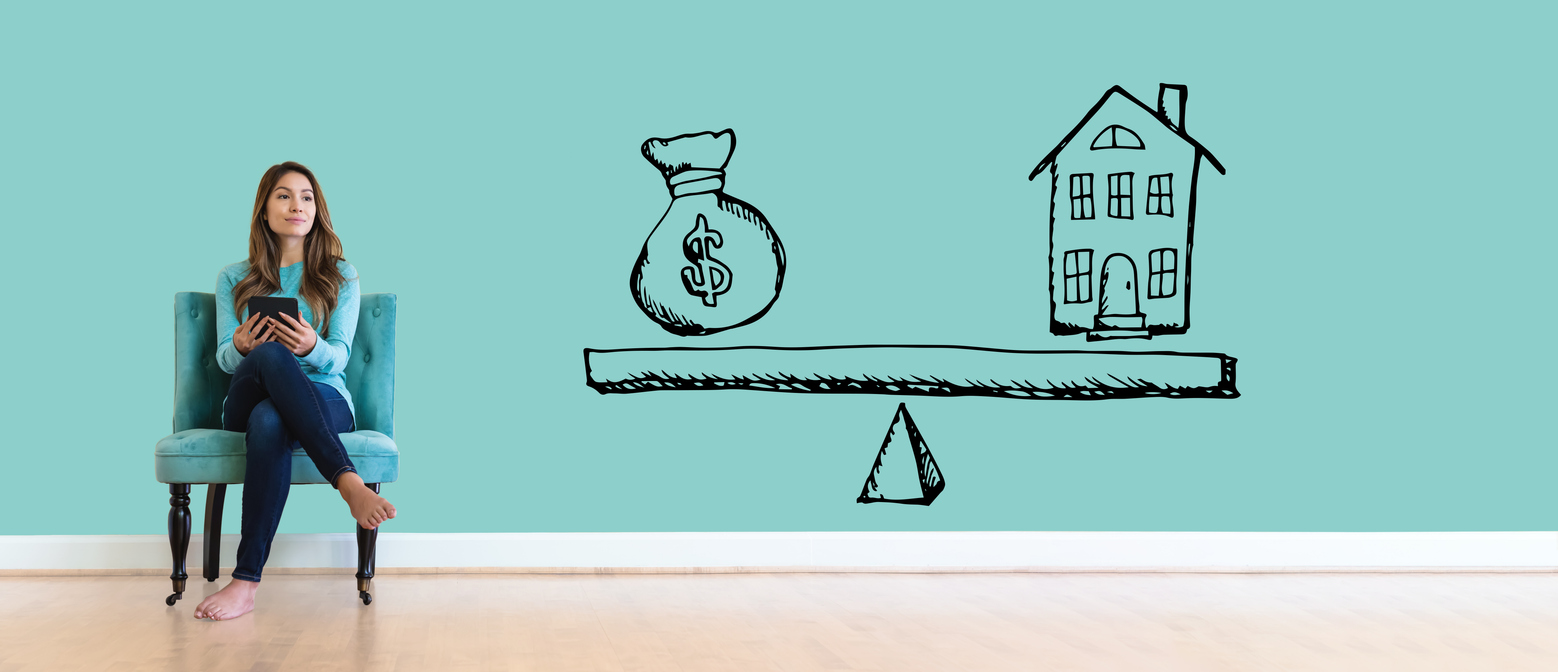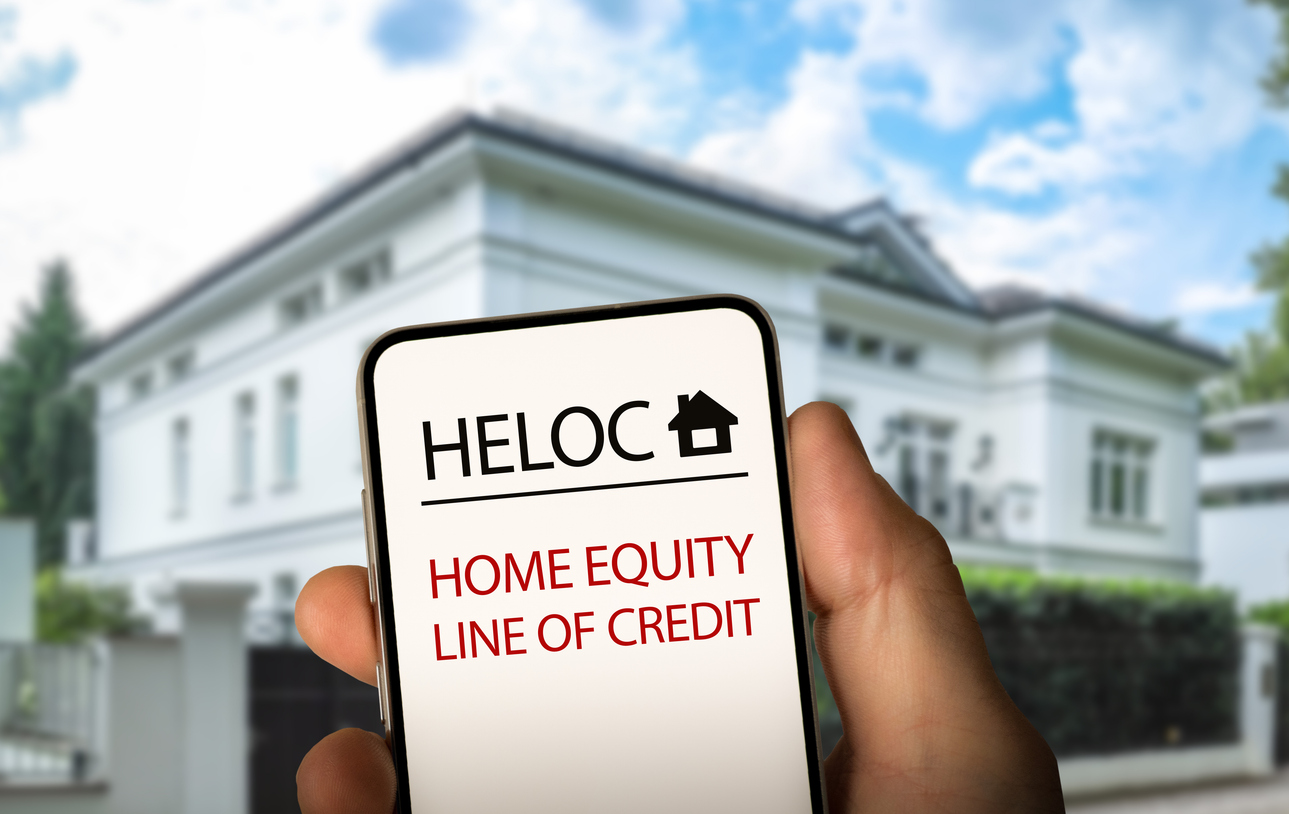With first mortgage rates trending upward, many homeowners are choosing a home equity loan to pay off high rate debts like credit card interest. In 2024, many Americans have too much credit card debt. About 50% of all credit card holders in the US carry a monthly balance, with more than 50 million people carrying credit card debt for over a year. Home equity loans for debt consolidation purposes will become very common in this economy. This is especially unfortunate because interest rates on credit cards in 2024 can top 20%.
Why Are Homeowners Take Out Home Equity Loans to Pay off Debt and Consolidate High Interest?
Americans also hold billions in other types of debt, such as auto loans and medical bills. Add up all that debt, and you can bet that many debtors would like to pay off what they owe and save money. How?
One option for homeowners is to get a home equity loan to pay off debt. Keep reading to find out how you may be able to do consolidate debt with a type of mortgage.
Home equity loans enable you to leverage your equity to access cash. This cash can be utilized to refinance other debts with higher interest rates, such as credit card debt, variable rate personal loans and even high rate student loan debt.
Homeowners frequently utilize funds from debt consolidation home equity loans for various purposes, including purchasing second homes, financing home renovations, or consolidating debt. Particularly in today’s climate marked by elevated costs and interest rates, these loans can alleviate the burden of high-interest debt, such as outstanding credit card balances.
It’s important to note that not all debt consolidation home equity loans are created equal. Lenders differ in terms of loan amounts, eligibility criteria, interest rates, funding timelines, fees, and customer service quality. To identify the best home equity lender for your circumstances, thorough comparison shopping is essential.
What Is Home Equity?
If you have owned your home for more than a year or two and have a mortgage, you probably have tens of thousands or more in home equity. Equity is the amount of the home that you actually own. For example, if your home is worth $400,000 and you have $200,000 left on the mortgage, you have roughly $200,000 in equity. Theoretically, you could borrow some of that $200,000 with a second mortgage or cash-out refinance to pay off your debt.
There are several reasons that paying off debt with a home equity loan may be a good move:
- One payment: When you consolidate most or all of your debt with home equity, you can make your life simpler. Instead of paying several credit card bills every month, you have only one due date. On-time payments are a key part of a good credit score, so this aspect can help you avoid missing a payment.
- Lower rate: One of the worst parts of having credit card debt in 2024 is the high interest rate. Some credit cards have 20% or even 30% interest rates if you don’t pay off the card every month. When you borrow home equity, the loan is secured by your house, so you get a lower rate.
- Lower payments: Are you paying hundreds of dollars every month in credit card bills? Using your home equity at a lower rate could give you a lower monthly payment.
Are Home Equity Loans Good for Consolidating Debt?
 Carrying debt is rarely advisable, even in the best of times, and it can be particularly harmful when interest rates are rising. Higher interest rates mean increased costs for borrowers.
Carrying debt is rarely advisable, even in the best of times, and it can be particularly harmful when interest rates are rising. Higher interest rates mean increased costs for borrowers.
If you’ve accumulated expensive credit card debt or other obligations, your monthly payments might increase as interest rates rise.
We encourage homeowners to consider using their real estate to pay off their outstanding debt with a home equity loan.
When you take out a home equity loan, you receive the funds in a single lump sum and then repay it in monthly installments over a set term, which can range from 5 to 30 years.
Most home equity debt consolidation loans are fixed-rate, meaning your interest rate and monthly payment remain constant throughout the loan term. This fixed payment consistency makes it easier to budget for your payments. In contrast, with credit cards, your minimum monthly payment may fluctuate based on your balance.
A home equity loan is a type of second mortgage that allows you to borrow 75 to 90% of your home’s value, minus what you owe on your first mortgage. For example, if your home is worth $300,000 and you owe $100,000 on your mortgage, you have approximately $200,000 in equity. Your lender may allow you to borrow up to $160,000 or $170,000 of your equity, depending on the program and your qualifications.
Home equity loans have a fixed rate that is almost always lower than credit card rates. The term is typically 10 to 20 years but varies by lender. Many homeowners prefer a fixed rate home equity consolidation loan over a home equity line of credit or HELOC. This secure home equity line of credit is also a good option for paying off debt but the interest rate is variable. The other popular alternative to a second mortgage is doing a FHA refinance mortgage. If market rates rise, you could end up with a higher payment. Home equity loan rates are always fixed and predictable. Read more about what the FTC says about the risks of borrowing against your home equity.
Can I Use My Home Equity to Pay Off Debts?
There are various methods to leverage your home equity to settle debts, such as through a cash-out refinance. With a cash-out refinance, you can tap into your home’s equity to borrow a larger sum than your initial mortgage. This surplus can be utilized for any purpose, including debt repayment.
Borrowers often choose a HELOCS and home equity loans can consolidate debt from multiple credit cards or installment loans into a single loan, simplifying your finances with one monthly payment. This approach can be advantageous if the repayment period for the home equity loan is shorter than your existing debts or if the total interest paid is less than what you would pay without consolidating your debt.
Home Equity Loan Qualifications
Now that you understand how a home equity debt consolidation loan can benefit your finances, how do you get one? Here are the general qualifications for a home equity consolidation loan, but remember, each lender has their own requirements:
- At least 20% equity in the house. As noted above, equity is the amount you owe on your home loan compared to what the home is worth. This is known as the loan to value or LTV. Find your LTV by dividing your mortgage balance by the home’s current value. If you have $150,000 left on your mortgage and the home is worth $450,000, you would have a 33% LTV. So, you have 66% equity in the property. If you qualify, you could take out, say, $30,000 or $50,000, to pay off your credit card debt.
- Decent credit score. You generally need a credit score in the mid 600s to qualify for a home loan. You will not get the best rate with a 640 or 650 score, however. The best rates are for those with 700 scores or higher.
- DTI no higher than 43%. Debt to income ratio is another important factor for qualifying for a home equity loan. To determine your DTI, divide your total debt payments per month by the gross monthly income. If your percentage is more than 43%, most lenders will not give you a equity home loan. A lower DTI makes you a more desirable loan candidate.
- Enough income. There is no exact income requirement to get an equity loan. But you need to make enough to meet the DTI requirement for the money you want to borrow. You also will need to provide documentation that you have enough income coming in consistently.
What Will Home Equity Rates Do In 2024 And Beyond?
Home equity loan rates change according to many factors and every lender has slightly different rates. Many mortgage lenders tie home equity loan rates to the prime rate, which is affected by the policies of the Federal Reserve. Since 2022, the Fed has been increase rates to slow inflation, and second mortgage rates have risen considerably.
Generally, home equity loan rates are similar to mortgage rates, but are a few points higher. The second mortgage is subservient to the first mortgage, so if you default on the mortgage, the second mortgage provider is paid second. As a result, the second mortgage is a higher risk for the lender, so the rate is higher.
Home equity loan rates are expected to decline somewhat in 2024 and next year. Last year, interest rates for HELOC loans topped 10% briefly. Many financial market experts think the Fed will cut rates more in 2024, so there is a chance that home equity loan rates will decline. Even if home equity loan rates stay elevated, you can still save considerably over what you are paying on your credit cards.
Home equity loan vs personal loan for debt consolidation?: Both home equity loans and personal loans offer fixed-rate, lump-sum financing options. Personal Loans are unsecured loans, with rates based on your credit and income. Home Equity Loans are secured by real estate and typically have lower rates since your home serves as collateral.
How to Apply for a Home Equity Loan to Consolidate Debt
Each lender has its own guidelines for applying for a home equity loan. As with any loan, the strength of your credit profile will largely determine your approval and the interest rate you receive. Additionally, a higher credit score might allow you to access more of your equity.
Review your credit report to ensure there are no errors. Once you’re confident that your credit score is in good shape, compare lenders to secure the best loan rate. By law, each lender must provide you with a loan estimate in a standard format, making it easier to compare offers from different lenders.
Considerations for Equity Loans and Debt Consolidation
Having credit card debt is a drag on your finances. You are probably paying 20% or more in interest every month, which can cost you hundreds of dollars. A potential option is to tap your home equity with a fixed rate 2nd loan. A debt consolidation home equity loan is a fixed rate installment loan with a much lower rate than most credit cards. Talk to our loan professionals today about which home equity loan may be right for you!




